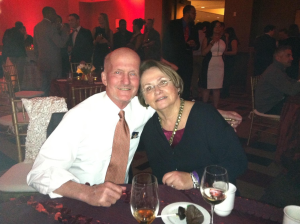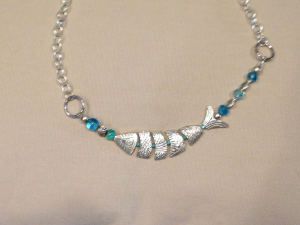By Rosemary Maconchie
When my husband Jim died from stage IV pancreatic cancer in April 2015, I was suddenly without my lifelong partner. We were together since high school; and when he died at age 69 I was suddenly alone for the first time in my life.
The experience of grief is different for everyone, and everyone has different advice to offer when a loved one dies. But what works for one person might not work for another. Try different coping strategies and do what works for you. While they might not work for everyone, here are some things that helped me in the initial weeks and months after my husband’s death.

Seeing My Primary Care Doctor
I met with Sue Morris, PsyD, director of the Bereavement Program at Dana Farber, soon after Jim’s death, and one of her first recommendations was that I visit my doctor. Often caregivers neglect their own physical (and mental) health during their loved one’s illness, and grief can also have a physical effect on your health. In addition to checking on my physical wellbeing, my doctor evaluated me for depression and sleep issues. It began a conversation that made me feel comfortable coming to my doctor for any problems that might develop in the future.
Staying Active
I enjoy walking and swimming, and I often had to push myself to do these activities during my bereavement. But besides the physical benefits, I found exercise relaxing and calming.
Saying “Yes” to Everything!
Getting out of the house, trying new things, and connecting with friends helped me immensely. It’s important to stay connected with other people, and really live. I once read, “Please don’t let me die while still alive.” I keep that in the forefront of my daily life.
Joining a Bereavement Group
I joined a group at Dana-Farber for people who had lost a spouse. It was wonderful to be with people who understood my loss. The group was comfortable and supportive from the very first meeting, and I still stay in touch with many of the other members. Private counseling is also an option, and not a sign of weakness! I did this in addition to the group and I found both helpful in different ways.
Read More:
Reading Books on Loss
I started with “Healing After Loss” by Martha Whitmore Hickman. Soon after Jim’s death, I could only concentrate long enough to read a few paragraphs, so this book’s brief, daily meditations were perfect. I read each meditation before I got out of bed and then again when I went to bed. It helped keep me focused. I gradually started reading other books on grief and loss, a practice my counselor called bibliotherapy.
Preparing Myself for Important Dates
Your loved one’s birthday, the day of his death, holidays, and anniversaries tend to be difficult times. Look at the calendar for upcoming dates so you don’t get blindsided. I also find the change of season to be difficult, but planning to do something during these challenging times, either alone or with friends or family, can be helpful.
Doing Things to Feel Close to Jim
We did some things during Jim’s illness that helped us both while he was living and me now in my bereavement. We created a playlist together of music that helped my husband through treatments, and we listened to it until his death. For our anniversary the year before Jim died, my daughter asked many of our family and friends to write a memory of my husband and me, and she made a leather, spiral-bound book from the memories, which Jim and I read often during his illness. My family also put together a video montage of photos for Jim’s wake. I now have all three of these wonderful things to look at and listen to when I feel the need to be close to him.
Taking Things at My Own Pace
We all do things in our own time. Don’t feel pressured by someone else to do things such as dealing with your loved one’s clothes, car, or other personal items before you are ready.
Sharing My Story with Others
I was in Anchorage to celebrate my son’s first birthday since his Dad’s death. While we were at a “bead fair,” I noticed there was a lot of jewelry with fish. My husband loved fish – both to eat and to catch – so I decided to buy a necklace with a fish in it as a reminder of my husband.

The woman selling the necklace started a conversation with me, noting that I had been back to her table several times. I told her my husband had died of cancer six months ago and that he loved fish so I wanted to purchase the necklace in his memory. I thought she would think it strange. But she didn’t; she was interested in my story. When I finished she told me her story. Her fiancé had died of cancer many years earlier, and even though she married someone else later on, she always remembered her first love. He loved the color green, so she has green towels, a green car. All in his memory. She understood my grief and we hugged each other at the table. Although we didn’t know each other, our shared story of grief connected us. There is so much richness in being able to connect with others, even strangers, about our life-changing loss.
